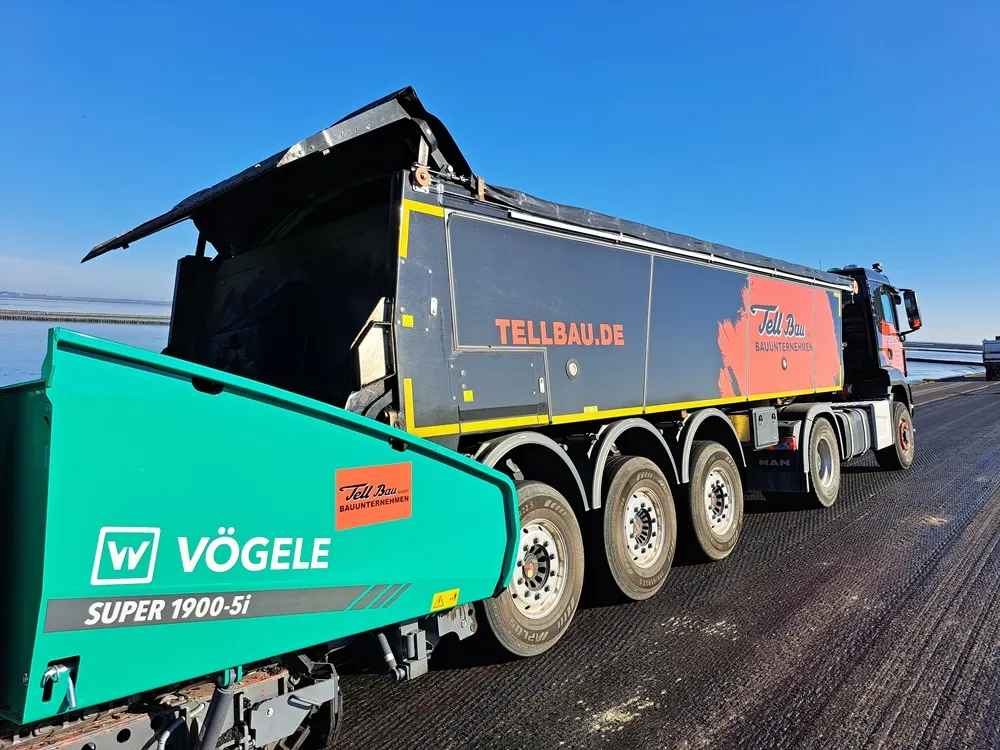
The biggest challenge in large-scale asphalting projects is maintaining a constant temperature of the mix. This is exactly where Fliegl’s ASW Thermo push-off trailer can help.
In contrast to conventional tipper vehicles, the Thermo push-off trailer enables controlled and even material discharge. This reduces material losses, prevents compaction problems and ensures precise dosing of the asphalt. In addition, the push-off trailer can be unloaded in low halls or under bridges - a clear advantage over tippers.
The focus is not only on efficiency, but also on safety. As the Fliegl ASW Thermo does not tip over, there is no risk of tipping. At the same time, reduced maintenance requirements contribute to a high level of cost-effectiveness. In addition, the reduced CO₂ emissions due to less loss of mix and optimised transport enable a more sustainable construction method.
Its special thermal insulation ensures that the asphalt remains at the optimum processing temperature throughout the entire transport and paving process. Temperature fluctuations, which can lead to reduced adhesion and cracking, are minimised. As a result, the paving quality is significantly improved and the asphalt pavement lasts longer.









